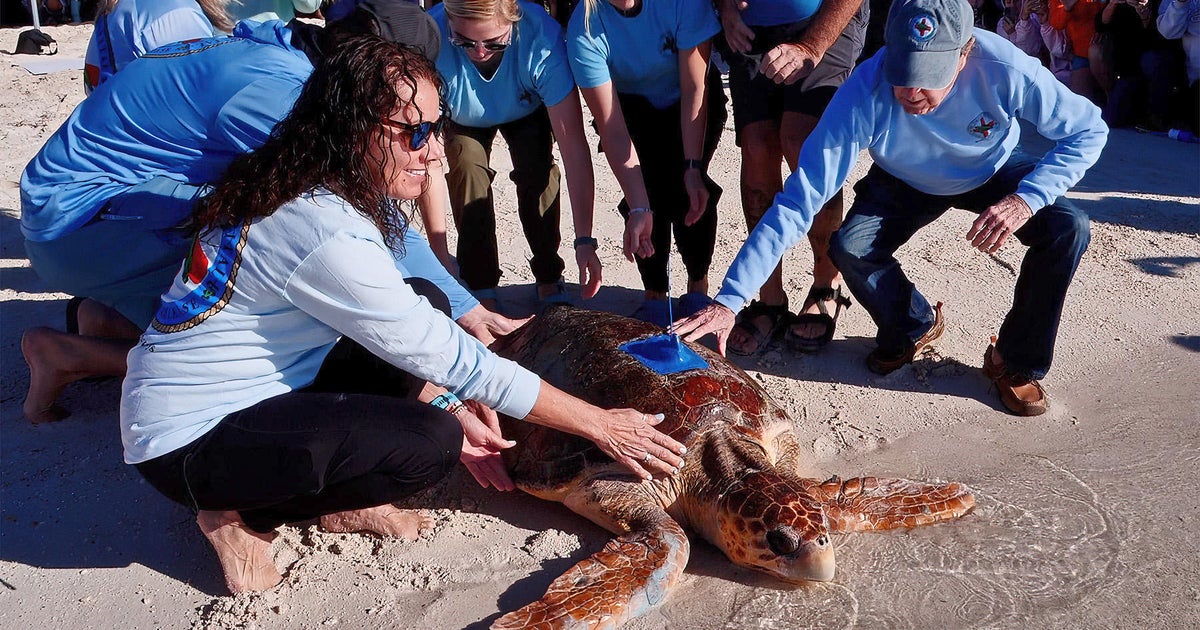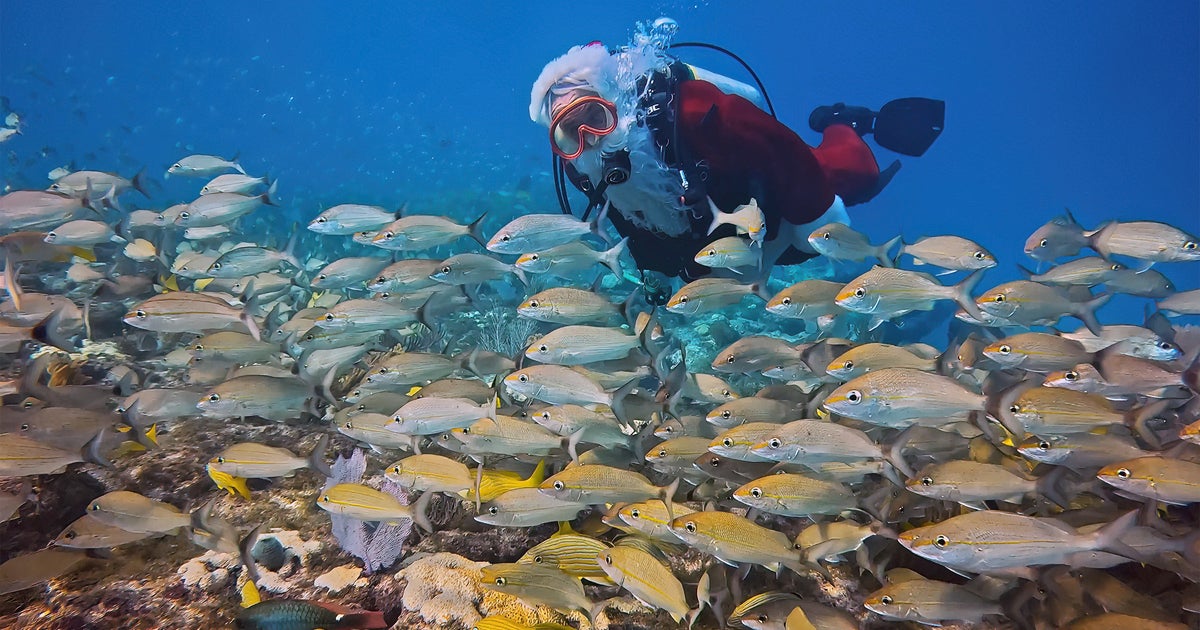UM researchers work to preserve South Florida's coral after soaring ocean temps put them at risk
MIAMI -- Sandy beaches surrounded by warm water. It's what brings thousands to the state every year, but this past summer the waters were too warm for the marine life that has called South Florida home for thousands of years.
The record-setting ocean temperatures in the Florida Keys and just off the state's southern coastline resulted in what is called coral bleaching.
"That really sounded the alarm for us, that we could lose all the coral we had been growing over the last decade from this single bleaching event," said Dalton Hesley a researcher at the University of Miami's Rosenstiel School of Marine and Atmospheric Science. "We had to act."
Researchers work to aid coral after blistering summer
That's exactly what he did with other researchers at the university.
"It was necessary to build a full-scale coral rescue, to build a land-based arc to protect corals from extreme heat they were experiencing," Hesley said.
The warm water caused the coral to expel the algae, which is a source of food for the coral and without it they can eventually die.
Events like this happen every summer when the water warms but this year it was different.
"Typically, this bleaching event happens over weeks," Hesley said. "We were seeing these corals cooked in a matter of days which was alarming."
The rescued coral made it back to the university's campus at Virginia Key, protected from the scorching sun and record-breaking warm water.
"We offer a safe haven from some of the temperature stresses they are going through but also allow research to be done by the students," said Cameron McMath, a university researcher.
Looking to the future to save coral
The rescue helped save the coral today, but experts say it is the research that will help the coral survive into tomorrow.
A healthy coral reef is beneficial for everyone living in South Florida.
"Corals are a living animal that create a framework that marine organisms call home, protect our coastline, and support out economy," Hesley said.
That framework can help buffer storm surge and protect the coastline. Without it then even a minor storm would result in significantly more flooding and property damage.
It is why this research is so important.
The end result is to return the coral to the cooler water after the summer heat.
"Take those corals that have the toughness to them," McMath said. "Those are the ones we're putting back on the reefs again."
CBS News Miami returned with the research team to get a first hand look at the coral they are researching along with the rescued coral they are returning to the cooler water once the water temperature had dropped.
The initial inspection looked good.
"Fortunately, only a few of the corals that were bleached were paling," said Liv Williamson, a coral researcher at the University of Miami. "The vast majority looked healthy."
While the research shows promise with the corals recovery, the reef was still impacted.
"Every single bleaching event has a long-term impact," Hesley said. "It becomes more problematic if we see another event next year on top of the one we just had."
It's a problem that will only continue to grow as the water warms due to climate change.
Said Hesley: "The norm has shifted; how do we scale up coral rescue and restoration along with research and public action? We're a small team and this is a big event."
More climate change coverage:
- For stories about how winter is changing across the country, and to watch the documentary 'On the Dot,' please visit Arctic melting foreshadows America's climate future.






